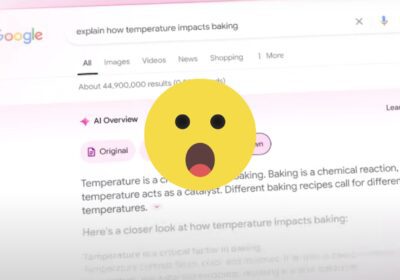How to Create Search Engine Optimized Content Without Sacrificing Quality


When writing content, we often find ourselves faced with a dilemma: is it possible to write well without losing SEO opportunities? The truth is that it is not only possible, but it is advisable that your content is well written and pleasant for a person to read.
It is no longer necessary to write for algorithms, now it is necessary to write for people. Here I’m going to show you the best way to do it.
Use Keywords in the right measure
In SEO, we know keywords are very important. They are what allows Google to understand what your text is about so that users can find it. But no one wants to read a list of keywords, jammed into your content. Just as no one wants to read a poorly put together text that you have to fight to decipher. Keywords should be sprinkled with the same care as a chef seasoning a recipe. What you should try is to position your content for a few keywords, very well selected and considered. This way it will also be easier to include them naturally and coherently in the text and titles. In fact, if Google detects that you are spamming too many keywords, it can be counterproductive. A good trick is to read what you’ve written several times to make sure it sounds correct and easy to understand.
You have to create value
I am the first one who loves literature, but we should not try to make our content excessively beautiful. The important thing is that the content is useful. The vast majority of times, what users are looking for is the answer to a question. And good content should be created to help them. Actually, it’s as simple as thinking: What would I like to find? Would I really be interested in this? Will it solve my situation? The way you structure and write the content must be aimed at answering these questions. And above all, it must be designed so that it can be read by a human.
An essential part of SEO is taking care of the titles. You must find the balance between arousing curiosity and being honest with what you are going to offer in your content. With click baiting you can get a lot of traffic in a timely manner, but you will lose it quickly and users will be disappointed. Furthermore, when your content is truly practical, users themselves will recommend and share it. This is, without a doubt, the best advertising your content can have.
Take advantage of the main mental triggers
In marketing, oddly enough, psychology is a very important part. At the end of the day, you must try to enter the minds of your consumers and awaken a reaction in them: buy what you sell. To achieve this, there are a series of mental triggers that are commonly used in copywriting. If you don’t know them yet, you’ll see that they are everywhere.
1. Urgency: If you don’t do it now, you’re going to miss it: “Only for today, 50% off.” You can even add a countdown.
2. Scarcity: If we know that something is scarce, we want to buy it. “Only 2 left at this price.” Airlines and hotels love it.
3. Authority: If experts recommend it, it gives us reliability. “Recommended by 9 out of 10 professionals.” Dentists still do it.
4. Reciprocity: It consists of making users feel indebted to you. “We offer you a free guide.” It is the basis of inbound marketing. Not only can you benefit from getting them to buy from you, it is also very positive for them to leave you their email, for example.
5. Empathy: It consists of making the client feel identified. “Are you tired of waiting too?” This is very effective as a hook.
6. Social proof: The opinions of others influence us a lot. “I was skeptical but I loved it.” That is why good reviews and success stories are so important. Incorporating our own experience into the way we write always adds personality and credibility.
Keep the personal touch
For better or for worse, AI is increasingly capable of writing better. But as the internet fills with automated generated content, it becomes more important than ever to have a personal, human touch in what we write. There are those who take it to the extreme. I’ll tell you a secret: there are copywriters who recommend including intentional spelling mistakes. Of course, this is the opposite of writing well, but it makes the text perceived as much more authentic and real. But this can be achieved in other ways, without having to sacrifice grammar. For example, you can choose expressions that give you personality or that are very recognizable. Like the “unsolicited opinion” or the “super tips of the day”. We immediately know who is behind it.
Ultimately, everyone who writes must find their own style. It doesn’t necessarily have to be a very marked or exaggerated style. But it must convey some personality. Mainly, it should show us that there is a person on the other side of the screen who has made an effort to write what we are reading. This subconsciously makes us have more interest in what is in front of us. It is an unconscious mental trigger: it makes us retain our attention and feel indebted to the creator. And in the same way, as soon as we detect a word or phrase that makes us feel that the text has been made by an AI, we lose our attention. I’ll tell you another secret: chatbots use sentences that are too long, semicolons, and above all repeat themselves with other words. Avoid doing all this.
With practice you will be able to lose your fear of trying new things and develop your own style. For example, you will gradually feel more comfortable addressing those reading directly or asking rhetorical questions; “Hey you, yes you!” See? You can also take some creative leaps. Citing a relevant author or even a movie scene can contribute to what you write. Or even a few touches of humor. Many times you will be surprised that this is precisely what readers like the most. In short, talk to them as if they were listening to you. Make sure they cannot look away from the paper (or the computer) in order to reach to the end of what you have written.


















